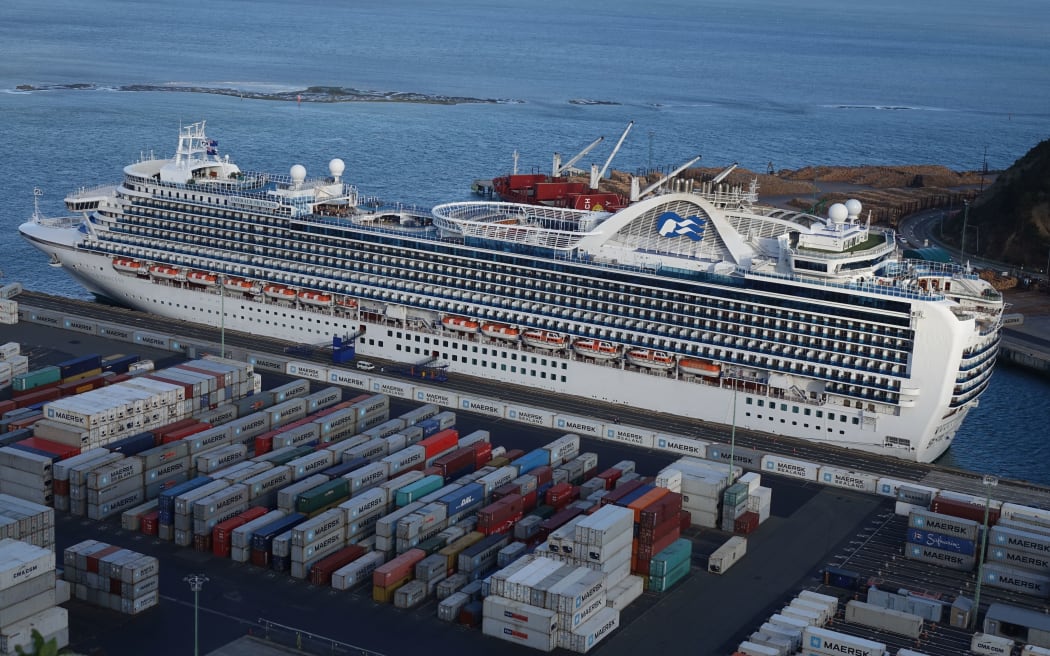The family of a cruise ship crew member killed last year has lost more than $800,000 because of his death, Maritime New Zealand says.

The Emerald Princess berthed at Port Chalmers. Photo: RNZ / Lydia Anderson
Allan Navales, a 32-year-old Filipino father, was killed in February 2017 when a nitrogen cylinder exploded on board Emerald Princess while docked in Port Chalmers, near Dunedin.
Princess Cruise Lines, which operates a fleet of about 20 cruise ships from Bermuda, has pleaded guilty to a charge brought under the Maritime Transport Act.
Lawyer for Maritime New Zealand, Dale La Hood, told the Dunedin District Court Mr Navales family was "living in poverty in the Philippines".
Mr Navales was sending money home to assist his family at the time of his death and his sister had been left as "effectively a solo mother" to the 32-year-old's intellectually disabled daughter.
Judge Kevin Phillips heard submissions on sentencing this morning.
The court heard Mr Navales was only earning $US25,000 ($NZ37,000) as a crew member working on board Emerald Princess.
On 9 February 2017, Mr Navales and another crew member, Bernabes Santos, filled nitrogen cylinders which were used in operating the hydraulic lifeboat system on board the ship.
After filling the cylinders Mr Navales instructed Mr Santos to turn on the hydraulic system, a summary of facts said.
The system had been operating for about a minute when one of the nitrogen cylinders exploded.
Mr Navales was close to the cylinder and killed by the explosion, which also caused another cylinder to fly off the ship and onto the dock spinning around and releasing nitrogen.
Cruise ship passengers and crew were walking on the dock where the second cylinder was thrown.
"An inspection of [the] cylinders showed areas of corrosion," the summary said.
"On the failed cylinder significant wastage and pitting near where the cylinder failed was visible."
The cylinder had corroded to 1.52mm thickness at the failure point. The cylinders were usually 6.2mm thick.
The staff charged with filling the cylinders were given no training or induction on how to do so and no risk assessment of the hazards associated with the task had been performed.
It had been more than a decade since the cylinders had been inspected, the summary said.
An investigation by Maritime New Zealand found several failings under the Maritime Transport Act, which had led to unnecessary danger or risk to people.
More than 3000 people were on board the ship when it docked in Dunedin.
Maritime NZ sought $812,000 for the family, but accepted such reparations are unlikely.
The offence also carries a maximum penalty of $100,000 fine.
Judge Phillips has reserved his decision.

